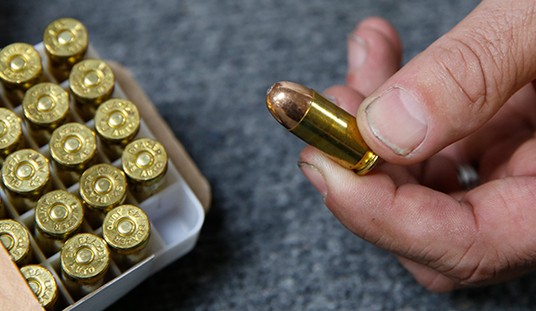Newer doesn’t necessarily mean better. However, the flip side is that older isn’t necessarily better, either.
For example, a new car isn’t inherently better than a classic, but since a Ford Pinto falls into the range of a classic, we can’t say classics are automatically better than new cars.
The same is true when you look at gun laws.
Unfortunately, a story out of Ohio seems to be trying to make the argument that they are.
In 2002, a Hamilton County judge sent shockwaves across Ohio when he ruled the state’s ban on carrying a concealed weapon violated the state constitution.
But when the case reached the Ohio Supreme Court, justices disagreed, writing that the ban “has been part of our legal heritage since 1859.” The justices noted that the Ohio Constitution had been amended by the state General Assembly “time and again without fundamental modification, that did not arouse the concern of two different constitutional conventions.”
Many Ohioans might not be aware and would be surprised to learn just how much current state gun laws have deviated from their long-entrenched and not-so-distant past, as the gerrymandered, GOP-controlled legislature has sided with gun lobbyists in recent years to dismantle the state’s firearms regulations.
Check out that last paragraph. Good to know the writer–who did not publish this as an op-ed, apparently–is being nice and unbiased, right?
Moving on…
“There really is a history of gun-control legislation in Ohio,” Steinglass said, noting that under the 1859 concealed-carry law, Ohioans couldn’t have a concealed weapon anywhere in the state, even inside their homes.
In 1920, the state Supreme Court upheld a strict pre-Civil War concealed carry ban in a case involving a laborer whose gun was found hidden in his belongings inside his company group-housing dorm, said Richard Coglianese, Columbus’ solicitor general.
“His defense was, ‘This is my residence,'” Coglianese said. “Courts said: Doesn’t matter. The General Assembly has the right to pass rational protective gun laws, and this is perfectly fine under the Ohio Constitution.”
After getting home rule rights under the state constitution, Ohio cities also enacted gun codes. The Ohio Supreme Court upheld Dayton’s permitting law in 1974, and Cleveland’s local assault weapons ban in 1993, writing that “public health and safety” is a proper (local) police power.
The overall argument here is that Ohio had gun control for more than a century prior to the more recent move of embracing the gun rights arguments.
However, older doesn’t necessarily mean better. Sure, their gun control laws pre-dated the Civil War, but do you know what else pre-dated the Civil War? Slavery.
The same is true of women not having the right to vote, laws prohibiting gun ownership by Catholics or Native Americans, and a host of other rules and regulations that clearly showed no respect for individuals, laws no one is seriously advocating a return to.
The age of a set of laws or a process doesn’t somehow mean it’s inherently right.
You’d think gun law supporters would get that. After all, how many argue that the Second Amendment is archaic?
The difference here is that state constitutions tend to be fluid and easily amended. A recent effort in Ohio to change that failed, in fact, so the idea that something existed on the state level since before the Civil War and thus shouldn’t be touched falls a little flat to me.
If you support gun laws, that’s fine, but you need to defend those laws as both constitutional–federal level, that is–and effective. Gun control is neither, though, so it doesn’t really matter if Ohio’s unconstitutional laws were around for a long time.
Segregation was around for a long time, too, but that doesn’t mean it was remotely right or constitutional.









Join the conversation as a VIP Member